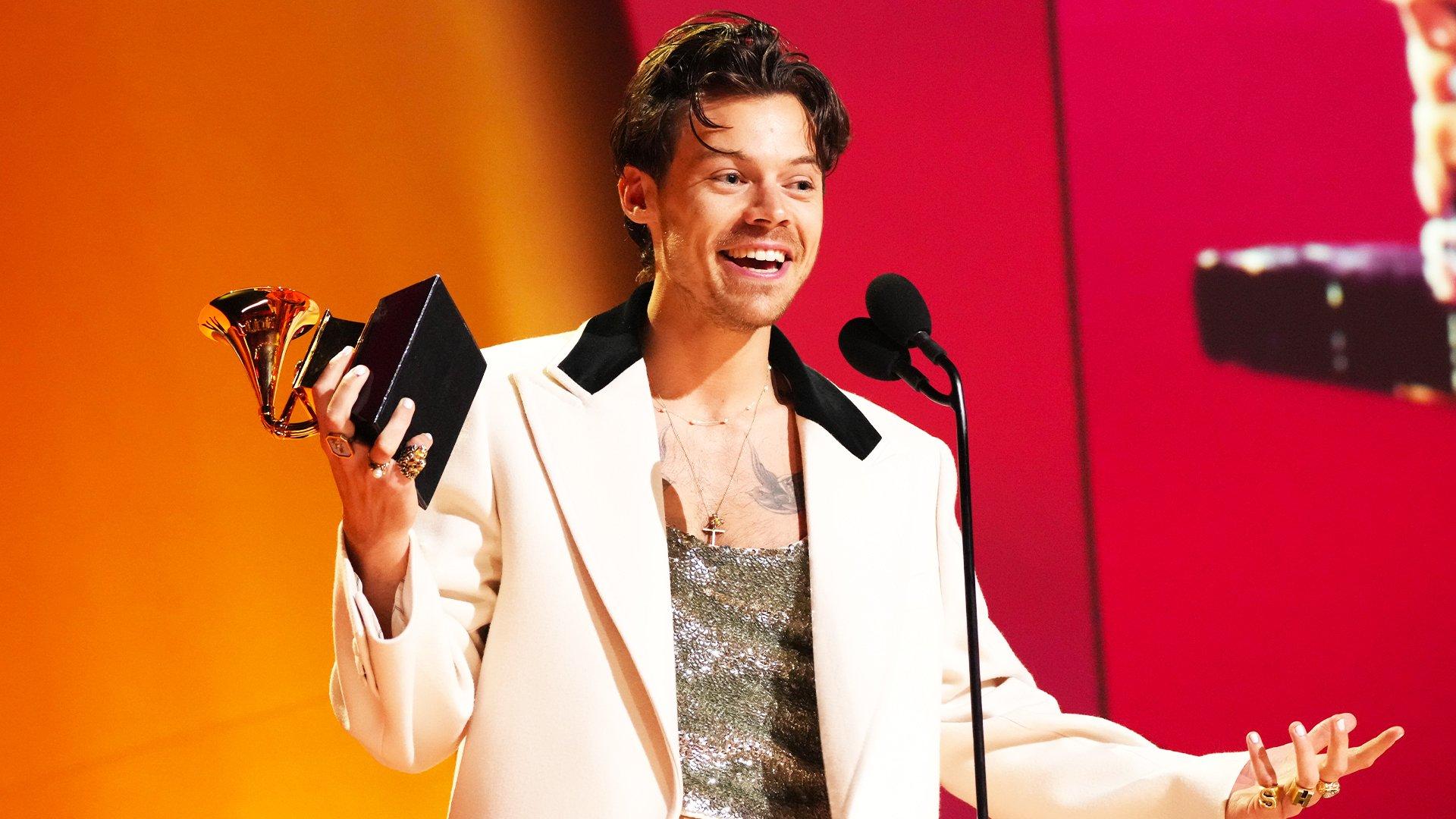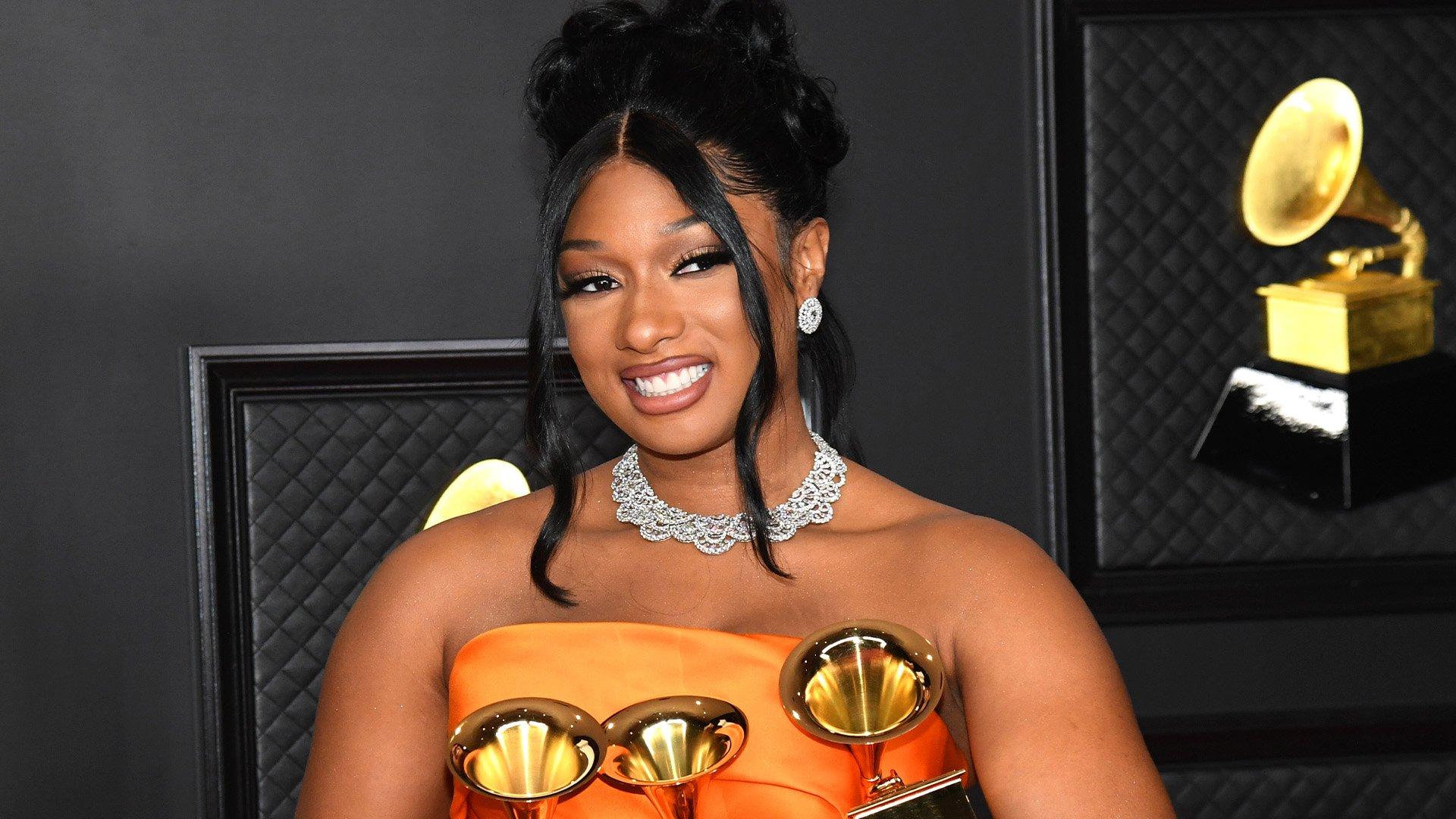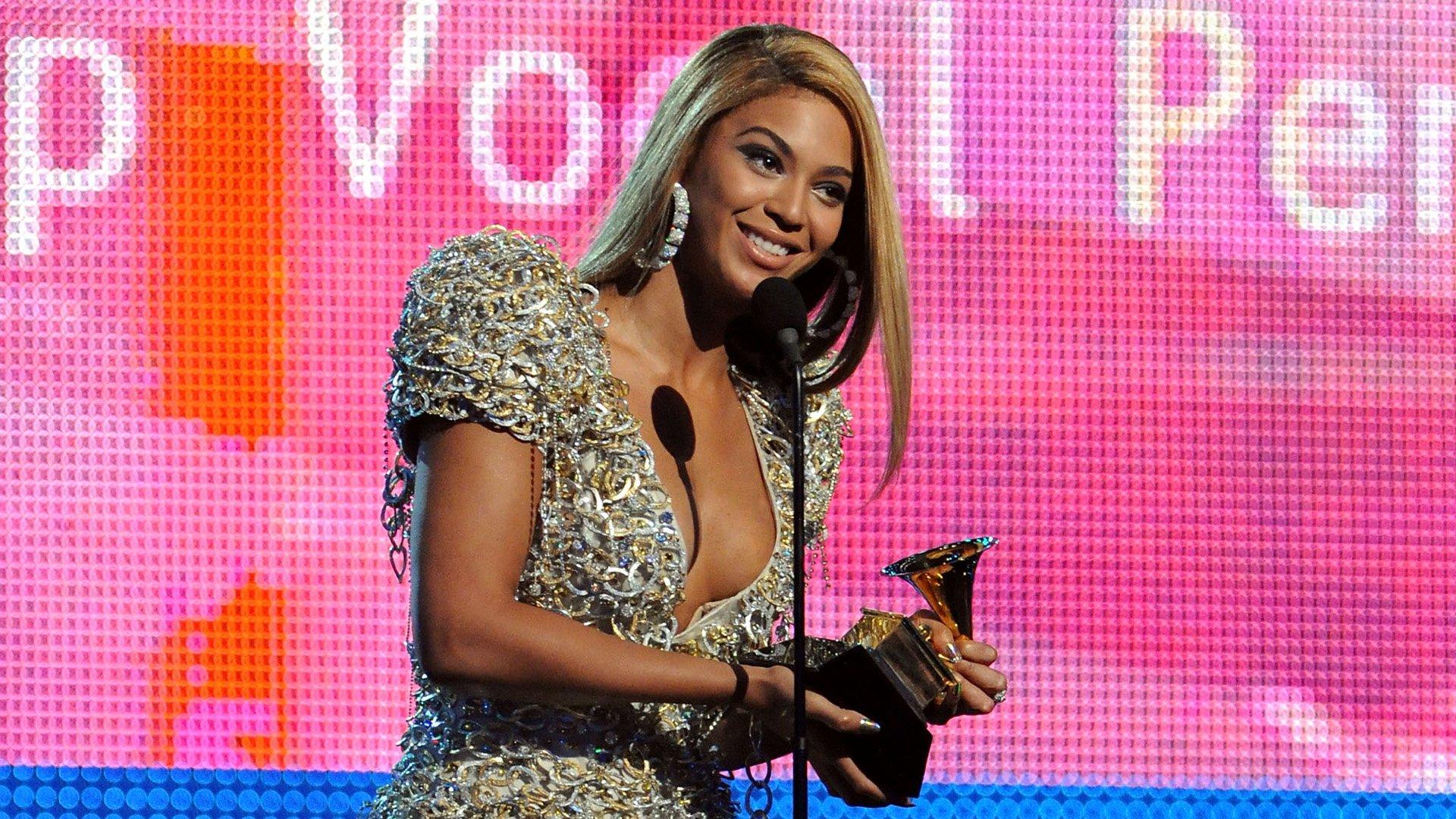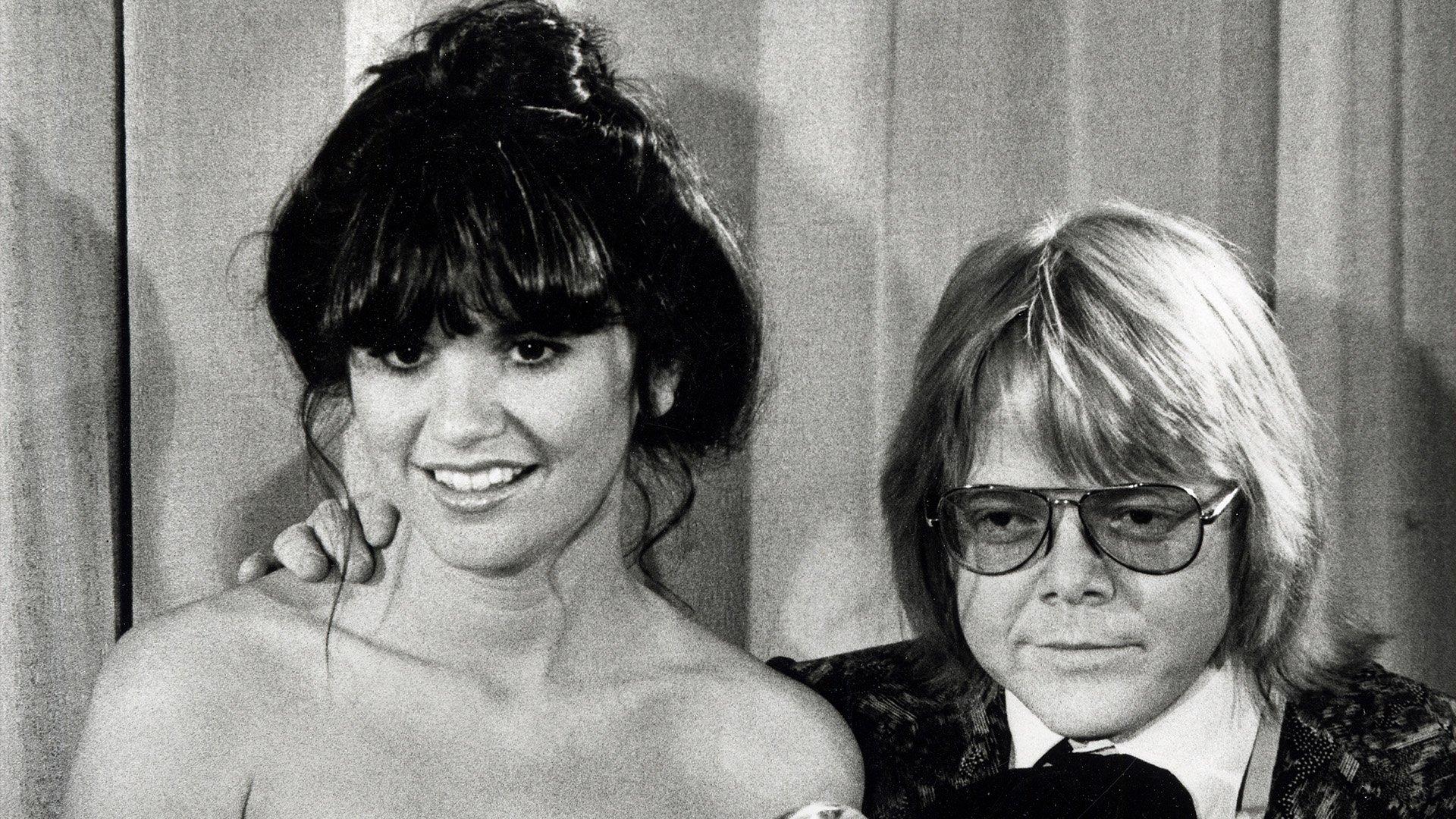Photo: Kevin Mazur

video
GRAMMY Rewind: Harry Styles Celebrates His Fellow Nominees (And His Biggest Fan) After Album Of The Year Win In 2023
Revisit the moment Harry Styles accepted the most coveted award of the evening for 'Harry's House' and offered a heartfelt nod to his competitors — Beyoncé, Adele, Lizzo, Coldplay and more.
After a wildly successful debut and sophomore record, you'd think it was impossible for Harry Styles to top himself. Yet, his third album, Harry's House, proved to be his most prolific yet.
The critically acclaimed project first birthed Styles' record-breaking, chart-topping single, "As It Was," then landed three more top 10 hits on the Billboard Hot 100 with "Late Night Talking," "Music for a Sushi Restaurant" and "Matilda." The album and "As It Was" scored Styles six nominations at the 2023 GRAMMYs — and helped the star top off his massive Harry's House era with an Album Of The Year win.
In this episode of GRAMMY Rewind, revisit Styles' big moment from last year's ceremony, which was made even more special by his superfan, Reina Lafantaisie. Host Trevor Noah (who will return as emcee for the 2024 GRAMMYs) handed the mic to Lafantaisie to announce Styles as the winner, and the two shared a celebratory hug before Styles took the mic.
"I've been so, so inspired by every artist in this category," said Styles, who was up against other industry titans like Beyoncé, Adele, Lizzo and Coldplay. "On nights like tonight, it's important for us to remember that there is no such thing as 'best' in music. I don't think any of us sit in the studio, making decisions based on what will get us [an award]."
Watch the video above to see Harry Styles' complete acceptance speech alongside his collaborators Kid Harpoon and Tyler Johnson. Check back to GRAMMY.com for more new episodes of GRAMMY Rewind, and be sure to tune into the 2024 GRAMMYs on Sunday, Feb. 4, airing live on the CBS Television Network (8 -11:30 p.m. LIVE ET/5-8:30 p.m. LIVE PT) and streaming on Paramount+ (live and on demand for Paramount+ with SHOWTIME subscribers, or on demand for Paramount+ Essential subscribers the day after the special airs).

Photo: Aitor Laspiur
interview
Omar Apollo Embraces Heartbreak And Enters His "Zaddy" Era On 'God Said No'
Alongside producer Teo Halm, Omar Apollo discusses creating 'God Said No' in London, the role of poetry in the writing process, and eventually finding comfort in the record's "proof of pain."
"Honestly, I feel like a zaddy," Omar Apollo says with a roguish grin, "because I'm 6'5" so, like, you can run up in my arms and stay there, you know what I mean?"
As a bonafide R&B sensation and one of the internet’s favorite boyfriends, Apollo is likely used to the labels, attention and online swooning that come with modern fame. But in this instance, there’s a valid reason for asking about his particular brand of "zaddyhood": he’s been turned into a Bratz doll.
In the middle of June, the popular toy company blasted a video to its nearly 5 million social media followers showing off the singer as a real-life Bratz Boy — the plastic version draped in a long fur coat (shirtless, naturally), with a blinged-out cross necklace and matching silver earrings as he belts out his 2023 single "3 Boys" from a smoke-covered stage.
The video, which was captioned "Zaddy coded," promptly went viral, helped along by an amused Apollo reposting the clip to his own Instagram Story. "It was so funny," he adds. "And it's so accurate; that's literally how my shows go. It made me look so glamorous, I loved it."
The unexpected viral moment came with rather auspicious timing, considering Apollo is prepping for the release of his hotly anticipated sophomore album. God Said No arrives June 28 via Warner Records.
In fact, the star is so busy with the roll-out that, on the afternoon of our interview, he’s FaceTiming from the back of a car. The day prior, he’d filmed the music video for "Done With You," the album’s next single. Now he’s headed to the airport to jet off to Paris, where he’ll be photographed front row at the LOEWE SS25 men’s runway show in between Sabrina Carpenter and Mustafa — the latter of whom is one of the few collaborators featured on God Said No.
Apollo’s trusted co-writer and producer, Teo Halm, is also joining the conversation from his home studio in L.A. In between amassing credits for Beyoncé (The Lion King: The Gift), Rosalía and J Balvin (the Latin GRAMMY-winning "Con Altura"), SZA ("Notice Me" and "Open Arms" featuring Travis Scott) and others, the 25-year-old virtuoso behind the boards had teamed up with Apollo on multiple occasions. Notably, the two collabed on "Evergreen (You Didn’t Deserve Me At All)," which helped Apollo score his nomination for Best New Artist at the 2023 GRAMMYs.
In the wake of that triumph, Apollo doubled down on their creative chemistry by asking Halm to executive produce God Said No. (The producer is also quick to second his pal’s magnetic mystique: "Don't get it twisted, he's zaddy, for sure.")
Apollo bares his soul like never before across the album’s 14 tracks, as he processes the bitter end of a two-year relationship with an unnamed paramour. The resulting portrait of heartbreak is a new level of emotional exposure for a singer already known for his unguarded vulnerability and naked candor. (He commissioned artist Doron Langberg to paint a revealing portrait of him for the cover of his 2023 EP Live For Me, and unapologetically included a painting of his erect penis as the back cover of the vinyl release.)
On lead single "Spite," he’s pulled between longing and resentment in the wake of the break-up over a bouncing guitar riff. Second single "Dispose of Me" finds Apollo heartsick and feeling abandoned as he laments, "It don’t matter if it’s 25 years, 25 months/ It don’t matter if it’s 25 days, it was real love/ We got too much history/ So don’t just dispose of me."
Elsewhere, the singer offers the stunning admission that "I would’ve married you" on album cut "Life’s Unfair." Then, on the very next song — the bumping, braggadocious "Against Me" — Apollo grapples with the reality that he’s been permanently altered by the love affair while on the prowl for a rebound. "I cannot act like I’m average/ You know that I am the baddest bitch," he proclaims on the opening verse, only to later admit, "I’ve changed so much, but have you heard?/ I can’t move how I used to."
More Omar Apollo News & Videos

Omar Apollo Embraces Heartbreak And Enters His "Zaddy" Era On 'God Said No'

How Danna Paola Created 'CHILDSTAR' By Deconstructing Herself

On Omar Apollo's New EP 'Live for Me,’ Limitless Experimentation Created Catharsis

Listen To GRAMMY.com's LGBTQIA+ Pride Month 2023 Playlist Featuring Demi Lovato, Sam Smith, Kim Petras, Frank Ocean, Omar Apollo & More

Omar Apollo On “Evergreen,” Growth & Longing
Given the personal subject matter filling God Said No — not to mention the amount of acclaim he earned with Ivory — it would be understandable if Apollo felt a degree of pressure or anxiety when it came to crafting his sophomore studio set. But according to the singer, that was entirely not the case.
"I feel like I wouldn’t be able to make art if I felt pressure," he says. "Why would I be nervous about going back and making more music? If anything, I'm more excited and my mind is opened up in a whole other way and I've learned so much."
In order to throw his entire focus into the album’s creation, Apollo invited Halm to join him in London. The duo set up shop in the famous Abbey Road Studios, where the singer often spent 12- to 13-hour days attempting to exorcize his heartbreak fueled by a steady stream of Aperol spritzes and cigarettes.
The change of scenery infused the music with new sonic possibilities, like the kinetic synths and pulsating bass line that set flight to "Less of You." Apollo and Halm agree that the single was directly inspired by London’s unique energy.
"It's so funny because we were out there in London, but we weren't poppin' out at all," the Halm says. "Our London scene was really just, like, studio, food. Omar was a frickin' beast. He was hitting the gym every day…. But it was more like feeding off the culture on a day-to-day basis. Like, literally just on the walk to the studio or something as simple as getting a little coffee. I don't think that song would've happened in L.A."
Poetry played a surprisingly vital role in the album’s creation as well, with Apollo littering the studio with collections by "all of the greats," including the likes of Ocean Vuong, Victoria Chang, Philip Larkin, Alan Ginsberg, Mary Oliver and more.
"Could you imagine making films, but never watching a film?" the singer posits, turning his appreciation for the written art form into a metaphor about cinema. "Imagine if I never saw [films by] the greats, the beauty of words and language, and how it's manipulated and how it flows. So I was so inspired."
Perhaps a natural result of consuming so much poetic prose, Apollo was also led to experiment with his own writing style. While on a day trip with his parents to the Palace of Versailles, he wrote a poem that ultimately became the soaring album highlight "Plane Trees," which sends the singer’s voice to new, shiver-inducing heights.
"I'd been telling Teo that I wanted to challenge myself vocally and do a power ballad," he says. "But it wasn't coming and we had attempted those songs before. And I was exhausted with writing about love; I was so sick of it. I was like, Argh, I don't want to write anymore songs with this person in my mind."
Instead, the GRAMMY nominee sat on the palace grounds with his parents, listening to his mom tell stories about her childhood spent in Mexico. He challenged himself to write about the majestic plane tree they were sitting under in order to capture the special moment.
Back at the studio, Apollo’s dad asked Halm to simply "make a beat" and, soon enough, the singer was setting his poem to music. (Later, Mustafa’s hushed coda perfected the song’s denouement as the final piece of the puzzle.) And if Apollo’s dad is at least partially responsible for how "Plane Trees" turned out, his mom can take some credit for a different song on the album — that’s her voice, recorded beneath the same plane tree, on the outro of delicate closer "Glow."
Both the artist and the producer ward off any lingering expectations that a happy ending will arrive by the time "Glow" fades to black, however. "The music that we make walks a tightrope of balancing beauty and tragedy," Halm says. "It's always got this optimism in it, but it's never just, like, one-stop shop happy. It's always got this inevitable pain that just life has.
"You know, even if maybe there wasn't peace in the end for Omar, or if that wasn't his full journey with getting through that pain, I think a lot of people are dealing with broken hearts who it really is going to help," the producer continues. "I can only just hope that the music imparts leaving people with hope."
Apollo agrees that God Said No contains a "hopeful thread," even if his perspective on the project remains achingly visceral. Did making the album help heal his broken heart? "No," he says with a sad smile on his face. "But it is proof of pain. And it’s a beautiful thing that is immortalized now, forever.
"One day, I can look back at it and be like, Wow, what a beautiful thing I experienced. But yeah, no, it didn't help me," he says with a laugh.
Latest News & Exclusive Videos

Behind Ryan Tedder's Hits: Stories From The Studio With OneRepublic, Beyoncé, Taylor Swift & More

Crowder Performs "Grave Robber"

NCT 127 Essential Songs: 15 Tracks You Need To Know From The K-Pop Juggernauts

5 Rising L.A. Rappers To Know: Jayson Cash, 310babii & More

Why Elliott Smith's 'Roman Candle' Is A Watershed For Lo-Fi Indie Folk

Photo: Kevin Mazur/Getty Images for The Recording Academy
video
GRAMMY Rewind: Megan Thee Stallion Went From "Savage" To Speechless After Winning Best New Artist In 2021
Relive the moment Megan Thee Stallion won the coveted Best New Artist honor at the 2021 GRAMMYs, where she took home three golden gramophones thanks in part to her chart-topping smash "Savage."
In 2020, Megan Thee Stallion solidified herself as one of rap's most promising new stars, thanks to her hit single "Savage." Not only was it her first No. 1 song on the Billboard Hot 100, but the "sassy, moody, nasty" single also helped Megan win three GRAMMYs in 2021.
In this episode of GRAMMY Rewind, revisit the sentimental moment the Houston "Hottie" accepted one of those golden gramophones, for Best New Artist.
"I don't want to cry," Megan Thee Stallion said after a speechless moment at the microphone. Before starting her praises, she gave a round of applause to her fellow nominees in the category, who she called "amazing."
Along with thanking God, she also acknowledged her manager, T. Farris, for "always being with me, being by my side"; her record label, 300 Entertainment, for "always believing in me, sticking by through my craziness"; and her mother, who "always believed I could do it."
Megan Thee Stallion's "Savage" remix with Beyoncé also helped her win Best Rap Song and Best Rap Performance that night — marking the first wins in the category by a female lead rapper.
Press play on the video above to watch Megan Thee Stallion's complete acceptance speech for Best New Artist at the 2021 GRAMMY Awards, and remember to check back to GRAMMY.com for more new episodes of GRAMMY Rewind.
Black Sounds Beautiful: How Megan Thee Stallion Turned Viral Fame Into A GRAMMY-Winning Rap Career

Photo: Jeff Kravitz/FilmMagic
video
GRAMMY Rewind: Watch Beyoncé Win A GRAMMY For "Halo" During Her Record-Setting Night In 2010
As you dive into Beyoncé's new album, 'COWBOY CARTER,' revisit the moment Queen Bey won a GRAMMY for "Halo," one of six golden gramophones she won in 2010.
Amongst Beyoncé's expansive catalog, "Halo" is easily one of her most iconic songs. Today, the 2009 single is her most-streamed song on Spotify; it was her first video to reach one billion views on YouTube; and it helped her set one of her GRAMMY records in 2010.
In this episode of GRAMMY Rewind, watch the superstar take the stage to accept Best Female Pop Vocal Performance for "Halo" in 2010 — the year she became the first female artist to win six GRAMMYs in one night.
"This has been such an amazing night for me, and I'd love to thank the GRAMMYs," she said, admitting she was nervous before taking a deep breath.
Before leaving the stage, Beyoncé took a second to thank two more special groups: "I'd love to thank my family for all of their support, including my husband. I love you. And I'd like to thank all of my fans for their support over the years."
The five other awards Beyoncé took home that night were for the coveted Song Of The Year ("Single Ladies (Put A Ring On It)") and four R&B Categories: Best Contemporary R&B Album (I Am... Sasha Fierce), Best R&B Song ("Single Ladies"), Best Female R&B Vocal Performance ("Single Ladies"), and Best Traditional R&B Vocal Performance (for her cover of Etta James' "At Last").
As of 2024, Beyoncé has won the most GRAMMY Awards in history with 32 wins.
Press play on the video above to relive Queen Bey's "Halo" win for Best Female Pop Vocal Performance, and check back to GRAMMY.com for more new episodes of GRAMMY Rewind.
Enter The World Of Beyoncé
Beyond Country: All The Genres Beyoncé Explores On 'Cowboy Carter'
Beyoncé Is The Genre-Bending Queen On 'Cowboy Carter': 5 Takeaways From Her New Album
Beyoncé's New Album 'Cowboy Carter' Is Here: Check Out The Featured Artists, Cover Songs, And Tracklist
Everything We Know About Beyoncé's New Album, 'Cowboy Carter': Two New Singles, Tracklist, A Shift To Country & More
How Beyoncé Is Honoring Black Music History With 'Cowboy Carter,' "Texas Hold Em," 'Renaissance' & More
Songbook: The Complete Guide To The Albums, Visuals & Performances That Made Beyoncé A Cultural Force
A Timeline Of Beyoncé's GRAMMY Moments, From Her First Win With Destiny's Child to Making History With 'Renaissance'
How Many GRAMMYs Has Beyoncé Won? 10 Questions About The 'Renaissance' Singer Answered

Watch Beyoncé Make GRAMMY History With Her 32nd Win In 2023 | GRAMMY Rewind
6 Takeaways From 'Renaissance: A Film By Beyoncé'
Beyoncé's 'Dangerously In Love' Turns 20: How The Solo Debut Foreshadowed The Singer's Icon Status
5 Takeaways From Beyoncé's New Album 'Renaissance'

How Beyoncé Has Empowered The Black Community Across Her Music And Art | Black Sounds Beautiful

The Creative Rebirth Of Beyoncé On '4' | For The Record

Photo: Ron Galella/Ron Galella Collection via Getty Images
video
GRAMMY Rewind: Watch Linda Ronstadt's Sweet & Simple Acceptance Speech In 1977
When Linda Ronstadt won a GRAMMY for Best Female Pop Vocal Performance — for her seventh album, 'Hasten Down the Wind' — she only had one special person in mind: her producer, Peter Asher.
With Hasten Down the Wind, Linda Ronstadt became the first female artist with three million-selling albums in a row — and furthered her legacy as one of the pioneers of women in rock music.
The album also helped Ronstadt snag her second GRAMMY, as it won Best Female Pop Vocal Performance in 1977. (The year prior, she took home Best Female Country Vocal Performance for her cover of Hank Williams' "I Can't Help It (If I'm Still in Love With You).")
In this episode of GRAMMY Rewind, relive the moment Linda Ronstadt won Best Female Pop Vocal Performance for Hasten Down the Wind in 1977.
Ronstadt kept her acceptance speech short and sweet: "I'd especially like to thank Peter Asher," the producer of the pop rock LP. "Thank you," she added with a smile.
To date, Ronstadt has won 11 GRAMMYs and received 27 nominations. In 2011 and 2016, respectively, she received a Latin GRAMMY Lifetime Achievement Award and a GRAMMY Lifetime Achievement Award.
Press play on the video above to watch Linda Ronstadt take the stage to accept Best Pop Vocal Performance at the 19th Annual GRAMMY Awards and remember to keep checking back to GRAMMY.com for more new episodes of GRAMMY Rewind.
5 Songs To Get Into Kim Gordon's Solo Work, From "Change My Brain" To "I'm A Man"
